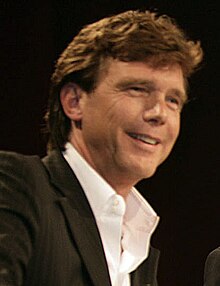
The Humorous and Controlling Origins of Reality Television

### “Cue the Sun!” by Emily Nussbaum: A Deep Dive into Reality TV’s Cultural Legacy
Emily Nussbaum’s new book, *Cue the Sun! The Invention of Reality TV*, offers a sharply insightful look into the rise of reality television, a genre that continues to influence pop culture worldwide. The Pulitzer Prize-winning critic’s latest work isn’t just a mere documentation of the gritty, unscripted world of reality TV; it’s an impassioned exploration of how the genre reflects society’s broader anxieties, desires, and flaws.
In *Cue the Sun!*, Nussbaum delves deeply into the origins and rise of reality TV, tracing its path from radio broadcasts to its current dominance in television programming. Throughout the book, her enthusiasm for the subject is infectious, turning what some may consider a frivolous topic into an engrossing commentary on modern media consumption. As Nussbaum argues convincingly, dismissing reality TV as mere entertainment negates its considerable cultural significance — both for good and bad.
#### Reality TV: Trash or Truth?
One of Nussbaum’s most potent assertions is summed up in a phrase she coins in the introduction: “dirty documentary.” Through this lens, she defines reality TV as a form of *cinéma vérité*, but heavily commercialized and commodified to offer maximum shock value. These shows occupy an ambiguous space in media, living between entertainment and exploitation, between profound truths and sensationalism. It’s a point that reflects the conflicting dynamics that make reality television so controversial and, paradoxically, so irresistible.
Nussbaum’s writing sets the tone with a conversational and upbeat style. Far from academic posturing, her analyses of popular reality series like *Survivor* and *Big Brother* are accessible and playful, likening the shows to sociological case studies that present real human behavior under extreme conditions. She notes that reality TV, for all its flaws, has given visibility to minorities and marginalized voices, allowing people to connect across vast cultural divides, even as it often trades in harmful stereotypes and hyperbolic drama.
#### Laying the Groundwork: The History of Reality TV
One of the book’s greatest strengths is the thorough historical research Nussbaum brings to her subject. She builds a rich narrative detailing the wild stories of media executives of yore, such as Stephen Chao, who, during his brief tenure at Fox in the early 1990s, tried outlandish stunts to boost television ratings. From male strippers at board meetings to tossing puppies into pools, executives at times mirrored the chaotic energy of the content they were working to promote. These strange tales of media history offer a fascinating window into the turbulent birth of reality TV as we know it today.
Nussbaum spends considerable time scrutinizing early giants like *Survivor* and *Big Brother*. These programs transformed how viewers engaged with television—trapping contestants in controlled environments, documenting their trials, and orchestrating intricate social experiments. Today, both these shows remain cornerstones of the genre, with 47 and 26 seasons under their belts, respectively.
#### The 2000s Boom: Did *Cue the Sun!* Skip Over Iconic Moments?
Despite her meticulous historical chronicling, the book falters slightly towards the end when it comes to covering the 2000s, an era that gave rise to some of the most iconic and controversial reality TV programs. Many readers might feel somewhat shortchanged by the treatment of massively influential franchises like *The Bachelor*, *The Apprentice*, and the *Real Housewives* series. As Nussbaum expertly navigates the early days of these cultural behemoths, certain sections feel glossed over or rushed, leaving the reader wanting more.
In particular, Nussbaum’s coverage of *The Apprentice* — the reality TV show that reshaped Donald Trump’s public image — deserved more in-depth treatment. Given the ongoing discussions about Trump’s media manipulation and his eventual political aspirations, the show stands as a pivotal intersection between entertainment and politics, perhaps meriting an entire book of its own.
#### Reality TV’s Darker Themes: Misogyny, Racism, and Exploitation
Nussbaum doesn’t shy away from discussing the more uncomfortable aspects of reality TV, including its frequent intersections with misogyny, racism, and homophobia. As a genre, reality TV reflects the inequalities and tensions alive in broader society. *Cue the Sun!* showcases how shows often reinforce these negative norms for dramatic effect, while at the same time offering opportunities for marginalized groups to gain visibility on their own terms.
For Nussbaum, reality TV’s duality is inescapable: It is simultaneously exploitative and liberating. She crafts a nuanced argument, recognizing how this genre is a product of late-stage capitalism and fame culture, but also how its democratized format has given voice to groups historically excluded from mainstream entertainment.
For example, programs like *RuPaul’s Drag Race